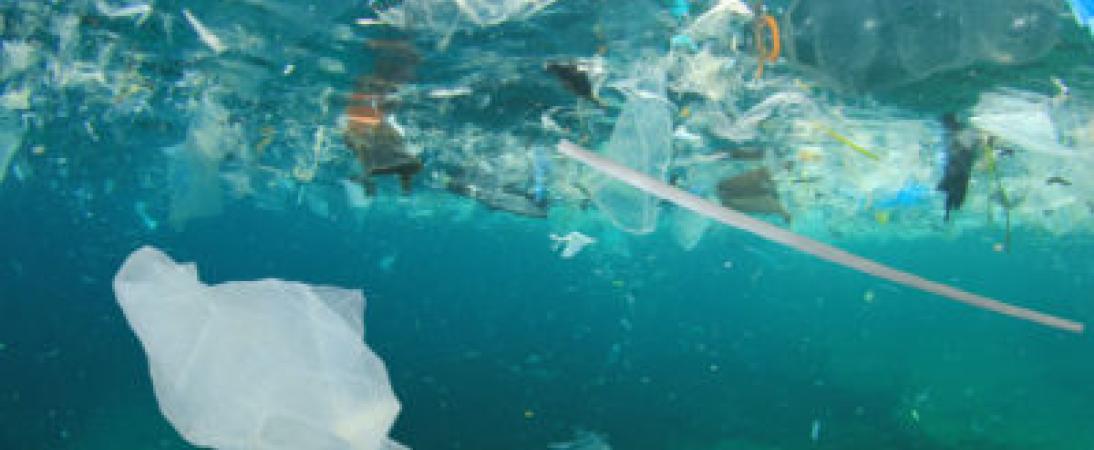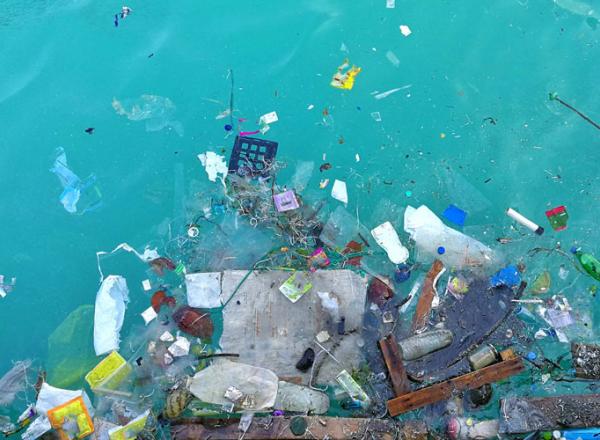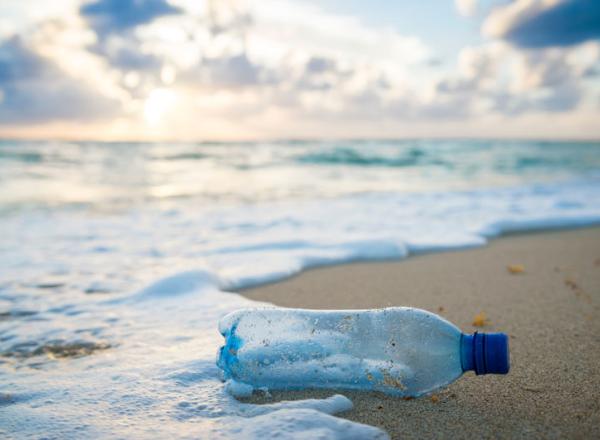Innovations

Plastic Waste Free Islands
A coalition to reduce plastic waste generation
In 2019, IUCN launched the Plastic Waste-Free Islands (PWFI) initiative as part of its global Close the Plastic Tap Programme, supported by the Norwegian Agency for Development Cooperation (Norad) and The Didier and Martine Primat Foundation. PWFI is a three-year initiative working in three global regions: the Caribbean, the Mediterranean and Oceania. PWFI’s overarching goal is to drive the circular economy agenda forward and to reduce plastic waste generation and leakage from islands.
The problem
Island economies, largely dependent on tourism and fisheries, often have to deal with one of the greatest threats to these industries: plastic waste. Not only do islands have to deal with the plastic waste they generate, but they also have to handle debris that wash onto their beaches from afar. Isolated or inaccessible from the mainland with waste processing infrastructure, islands have to deal with the unique challenge of managing plastic pollution in a self-contained area.
The solution
Plastic Waste Free Islands is a program working to create an alliance of islands across the Caribbean, Mediterranean, and Oceania to fight plastic pollution. By driving the circular economy agenda forward, this coalition aims to reduce plastic waste generation and leakage from islands around the world.
How it Works
Currently involving eight islands from three different world regions, Plastic Waste-Free Islands is founded on the assumption that plastic leakage is mainly driven by terrestrial activities. By changing the fate of the plastic waste stream on an island, there will be reduced leakage of plastic into the environment, which in turn will ultimately contribute to healthy marine and coastal ecosystems and communities.
To close the plastic tap in SIDS, the project is structured around a three-step approach. First, the amount and type of plastic waste at the island level will be measured and classified per recyclable and non-recyclable polymers (Knowledge). This will provide an overview of the stocks and flows of plastic waste and allow the identification of target solutions to reduce them. To ensure that the project results will be incorporated into national frameworks, supporting actions include making the economic and business case for taking action and identifying policy and regulatory support for the adoption of the measures identified.
Second, the project will identify economically viable products that can be developed with recyclable polymers as alternative to existing products. IUCN will work closely with local businesses to ensure these substitutional products can be developed locally with existing technologies and have a local market (Action). Partnering companies will act as champions for change willing to take the concepts from paper to product. For non-recyclable polymers, sound disposal and treatment solutions to prevent leakage will be identified through an assessment of best available technologies. These assessments together with policy recommendations will be promoted amongst the key stakeholder groups and champions willing to build on the work identified and supported.
Third, to support knowledge uptake and capacity building among target public and private stakeholders a sharing and learning environment will be fostered through participatory mechanisms. Fit-for-purpose communication products will be used to promote the knowledge and learning from the project, such as Blueprint for action that can be used as a framework on other SIDS.
Challenges
The challenges that many of these islands face have recently grown, given that markets like China are no longer accepting recyclables from other countries to process. As these islands must increasingly turn inwards to find solutions, coalitions like PWFI are becoming more important in creating networks of shared discovery and collaboration and finding solutions. Finding solutions that fit the needs of small islands and make economic and environmental sense can be challenging in this new environment.
What's Next
Having recently launched the project, the initial inception workshops to share the project goals with national stakeholders in the Caribbean and Pacific were recently completed. Data collection to measure plastic flows and leakage commenced in February and will be expanded to six countries in the coming months. Once completed, the results will be the basis on developing national action plans in each of the countries and help develop ways to recycle and reuse the waste plastic generated. This project will make a huge impact in the focus area of circular economy, furthering the abilities of island communities to manage and process their own plastic waste.

